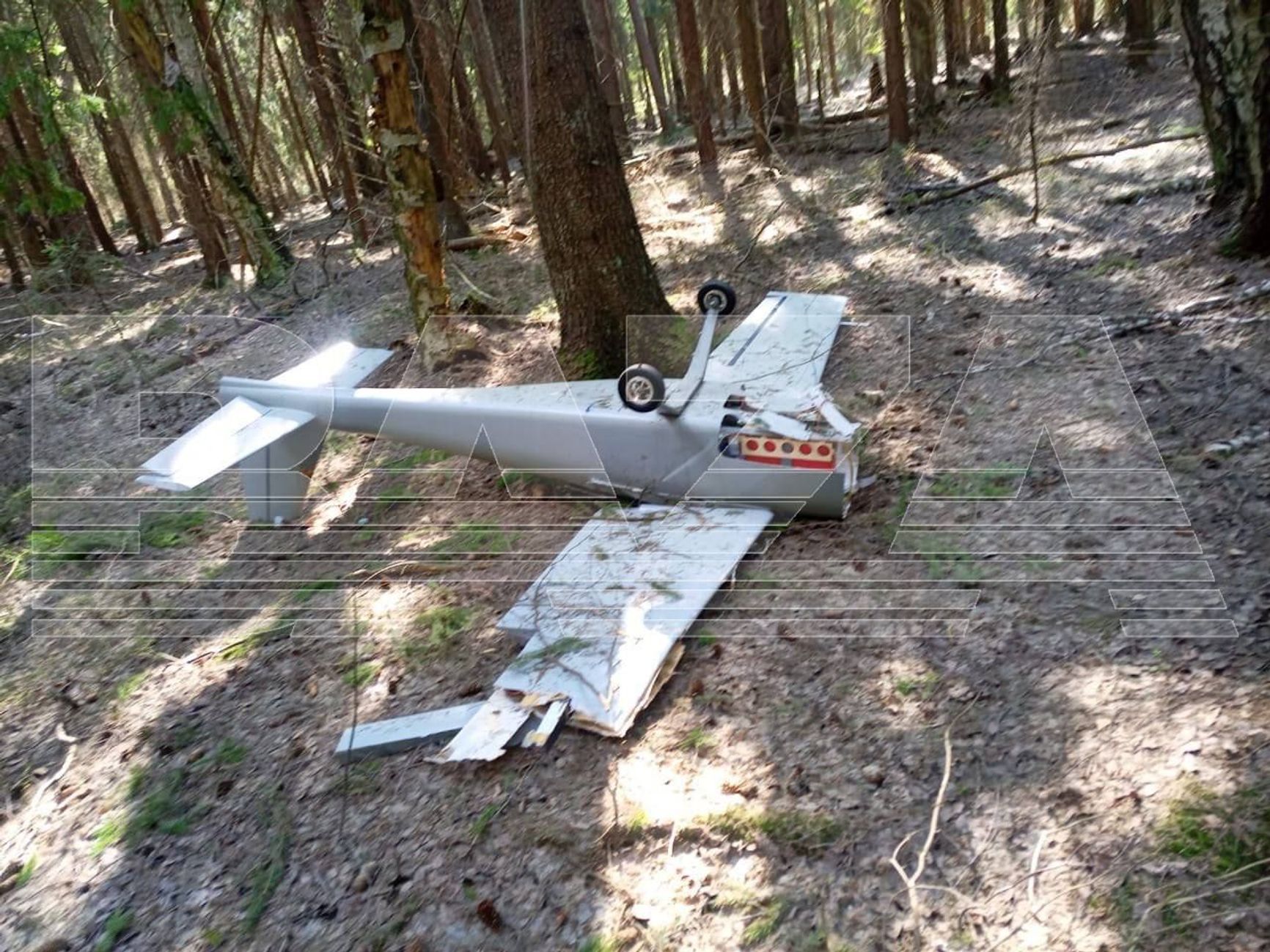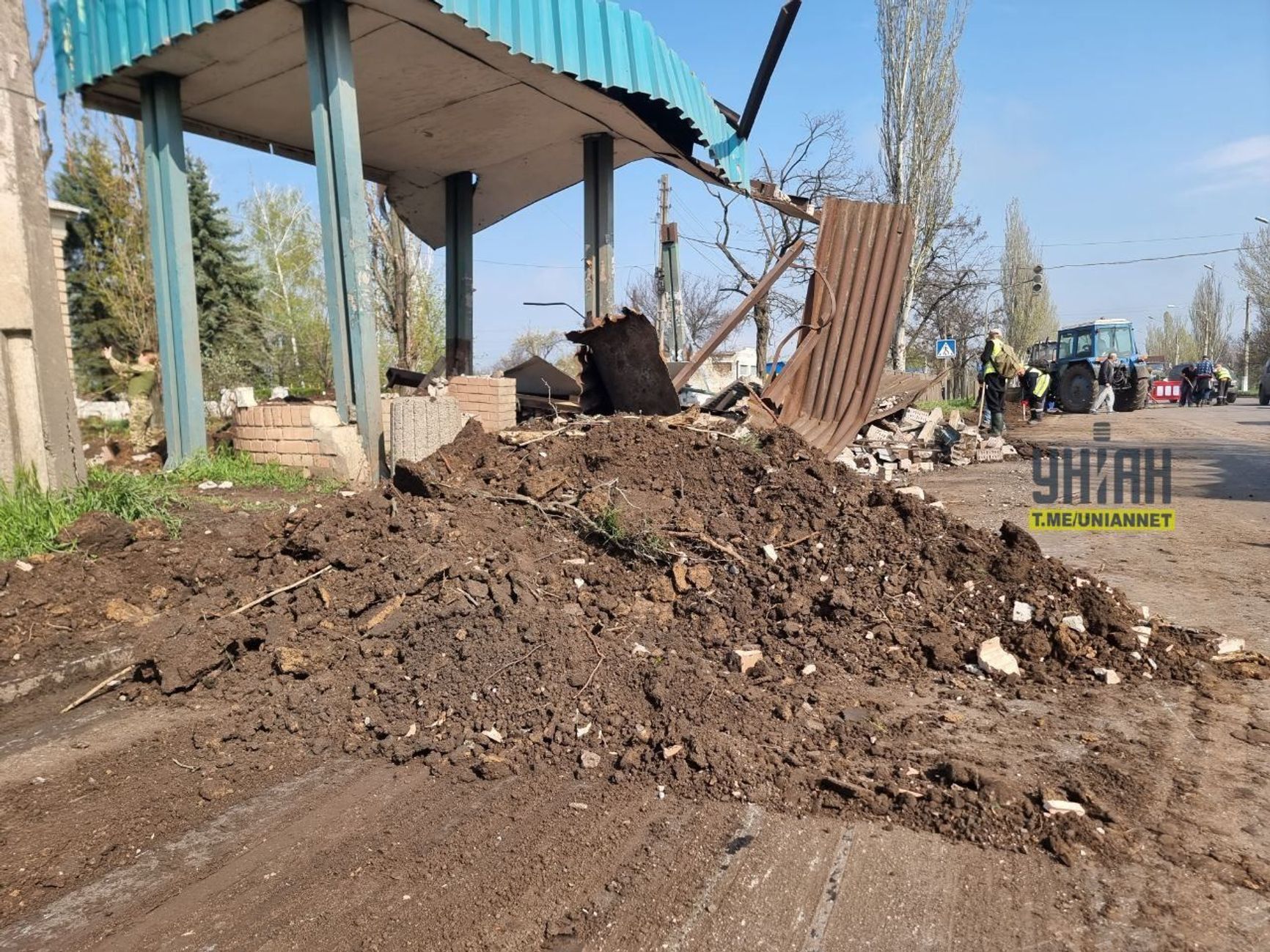
In today's summary:
- Ukrainian troops retreated from their last positions in the center of Bakhmut;
- Ukrainian President Volodymyr Zelensky voiced the reasons behind the desperate fight for Bakhmut;
- The Ukrainian army managed to gain a foothold on the left bank of the Dnipro in the Kherson region;
- Wagner Group founder Yevgeny Prigozhin announced that the PMC will “no longer take prisoners” in Bakhmut;
- Ukrainian drones (both aerial and naval) attacked the Belgorod region, Moscow’s suburbs, and Sevastopol in Crimea;
- The Armed Forces of Ukraine (AFU) are remotely mining Donetsk;
- Ukraine is trying to MacGyver solutions to counter Russian attempts to jam Starlink Internet terminals;
- Polish and Slovak MiG-29 fighters transferred to Ukraine are being used as a source of spare parts;
- The Czech Republic has transferred 12 more T-72M4 CZ tanks to Ukraine;
- The alleged service of Nikolai Peskov (Choles) – the son of Kremlin spokesman Dmitry Peskov – in the Wagner PMC is becoming increasingly more suspicious;
- Russian military police have kidnapped a resident of the Amur region.
The front line
Ukrainian forces have completely abandoned the center of Bakhmut and withdrawn to the west of the railway junction, according to a report by Bild journalist Julian Röpcke based on geolocated videos of the fighting. Russian forces appear to be continuing their offensive.
Oleksandr Syrskyi, commander of the Ukrainian Ground Forces, reported on Sunday, April 23, that he had toured the entire line of contact in the Bakhmut direction. “The Russians are suffering heavy losses, we are destroying their personnel and offensive potential,” Syrskyi said.

The AFU is preparing a counteroffensive and is not going to surrender Bakhmut, Ukrainian President Volodymyr Zelensky told Al Arabiya. “It is impossible for us to give up on Bakhmut because this will [help] expand the battle front and will give the Russian forces and Wagner chances to seize more of our lands,” Zelensky said. The outlet noted that if Russia captures Bakhmut, that could act as a stepping-stone to advance on two bigger cities it has long coveted in the Donetsk region of eastern Ukraine – Kramatorsk and Sloviansk.
Russian forces are preparing a new offensive on Vuhledar, according to a report from Oleksiy Dmitrashkovskyi, a spokesman for Ukraine’s Tavrian direction defense forces. According to Dmitrashkovskyi, the town is currently being bombed from the air.
According to MilitaryLand.net, the Ukrainian army has managed to gain a foothold on the left bank of the Dnipro River in the Kherson region. Russian pro-war channels wrote that at the end of last week, Ukrainian forces became more active in the Dnipro floodplain south of Potemkin Island, with landing groups of up to 30 soldiers disembarking in the area. Russia has also reportedly maintained control of the part of Antonivsky Island adjacent to the eponymous destroyed bridge, while the AFU has moved westward, toward Kruhlyk Island. Many researchers, such as the Australian Strategic Policy Institute’s Nathan Ruser, say that the area on maps on the left bank of the Dnipro, often marked as under AFU control, is actually a swampy flood plain with no roads, meaning it cannot serve as a bridgehead for a full-fledged offensive.
Yevgeny Prigozhin, founder of the Wagner Group, has declared that the PMC will “no longer take prisoners” in combat. The announcement was a response to a voice recording that allegedly captured a conversation between Ukrainian fighters who decided to shoot a wounded captive mercenary. The “intercept” was published in the Wagner’s Tactical Vest (“Razgruzka Wagnera”) Telegram channel – a source reportedly close to the PMC.
Air, artillery and naval attacks
Four Ukrainian UAVs attacked the Belgorod region on the night of April 24. According to local media reports, the drones were spotted in the Belgorod and Shebekinsky districts. One of the drones was reportedly shot down, after which it exploded due to it being packed with explosives. Another UAV fell on its own and also exploded, the reports said.
The “governor” of occupied Sevastopol, Mikhail Razvozhayev, claimed that on the night of April 24, the city was attacked by two maritime drones, one of which was destroyed by anti-submarine diversionary defense forces, while the other exploded on its own. No one was injured and four homes had their windows blown out as a result of the attack, Razvozhayev said. According to a report by the Russian Defense Ministry, three drones took part in the attack.
An article by naval analyst H. I. Sutton pointed out that since the previous attacks of Ukrainian naval drones, Russia responded by fortifying the entrance to Sevastopol harbor – the base of its Black Sea Fleet – with booms and barges. The fortifications prevented Ukrainian drones from penetrating deep into the bay during the attack.
Two crashed Ukrainian drones, including a UJ-22 Airborne packed with explosives, were found near Noginsk in the Moscow region. In February 2023, a similar drone flew to the town of Kolomna, located close to 140 kilometers (87 miles) from Russia’s capital.

Alexei Rogozin, head of the Center for Transport Technology Development, son of former Roscosmos director Dmitry Rogozin, wrote that qualified aviation engineers are capable of ensuring drones can fly 500 kilometers or more and that GPS signal suppression cannot be considered a universal way to interfere with UAVs:
“Provided that the lack of GPS is a given on the line of contact, all normal developers [both in Russia and Ukraine] find solutions for navigation without satellites. The cheapest solution is the inertial system. If GPS (or GNSS to be exact) is absent for several dozens of seconds, the inertial autopilot of the drone does not have time to accumulate a critical number of errors, and corrects itself when a signal appears. <...> But there are other [solutions]: from star trackers to processing geodetic information with digital vision (neural networks).”
The Russian Defense Ministry's April 24 update claimed that Russian forces shot down 38 Ukrainian UAVs in Kharkiv, Luhansk, Donetsk, Zaporizhzhia and Kherson regions in the past 24 hours. A total of 3,834 Ukrainian drones have allegedly been shot down since the start of the war.
The Ukrainian army shelled Donetsk with MFOM AT2 rockets filled with anti-tank mines, according to a report by the “DPR” representative office in the Joint Center for Control and Coordination (JCCC). Another report alleged that the AFU shelled Makiivka, killing two women and injuring another.
Commercial Chinese Mugin-5 Pro UAVs modified by the AFU attacked a fuel depot in Rovenky in the Luhansk region. According to the so-called “LPR’s” representatives at the JCCC, one fuel tank was damaged as a result of the strike.

In Kramatorsk, a traffic stop was destroyed and windows in a school were broken following an attack by Russian forces, according to a report by Ukrainian news agency UNIAN.

Arms supplies
Ukrainian forces are looking for homegrown solutions to counter Russian attempts to interfere with Starlink Internet terminals using electronic warfare systems. In particular, the terminals are placed in “Faraday cages” that are impervious to signals or in specially dug holes, making them inaccessible to Russian GPS suppression systems.

According to The Economist, “many” of the MiG-29 fighters handed over to Ukraine by Poland and Slovakia are not in flying condition and are used as a source of spare parts. The outlet specifies that these countries have supplied Kyiv with eight MiG-29s in recent weeks.
The Czech Republic has handed over 12 more T-72M4 CZ tanks (an upgrade of the T-72M1 tank), to Ukraine, according to a report by the ČT24 TV channel. A total of 86 T-72M1 tanks were in service with the Czech army, with over 50 of them having already been sent to Ukraine.
Peskov's son in the Wagner PMC
One of the founders of the Wagner Group, Yevgeny Prigozhin, recently claimed that Nikolai Peskov (Choles), the son of Kremlin spokesman Dmitry Peskov, served in the PMC on the front line in Ukraine. According to Prigozhin, Peskov Jr. served as a gunner in a Wagner unit manning a Uragan MLRS.
The well-known Telegram channel VChK-OGPU questioned the claim. According to the channel, Nikolai Peskov's Tesla Model X vehicle, which he always drove personally, drove around Moscow throughout 2022, Choles' acquaintances claim that he never went anywhere for long and did not change his usual lifestyle. Former and active members of the Wagner Group, interviewed by the channel, said that they had not seen Peskov's son in the combat zone.
Later, “exclusive footage of Nikolai Peskov at the front” appeared on the channel of TV propagandist Vladimir Solovyov. Pro-Russia political analyst Sergei Markov published a photo of Nikolai Peskov allegedly taking his enlistment oath to the Russian army, and added that sending their children to war with Ukraine would now become “popular with the Russian elite.”
However, it was quickly revealed that the footage published by Solovyov had previously been posted as an interview with a “a Cheboksary resident.” The image posted by Markov was also confirmed as depicting the son of former Ukrainian President Petro Poroshenko taking his oath of enlistment in the AFU.
In an interview with Komsomolskaya Pravda, Peskov Jr. claimed that he fought in the Wagner PMC and that his father helped him to get to the front line.
Russian military police kidnaps resident of Amur Region
The Telegram channel We Can Explain (“Mozhem Obyasnit”) published a video dated April 19, depicting Russia’s military police detaining a young man. According to the channel, the man in the video is a 30-year-old resident of the town of Svobodny in the Amur region named Miroslav. In September, Miroslav received a draft notice from the Russian military, which he ignored. It later turned out that the notice was sent by mistake. Despite the error, Miroslav was admitted into the Russian army, and is currently at a military training ground in the village of Yekaterinoslavka, according to the channel.